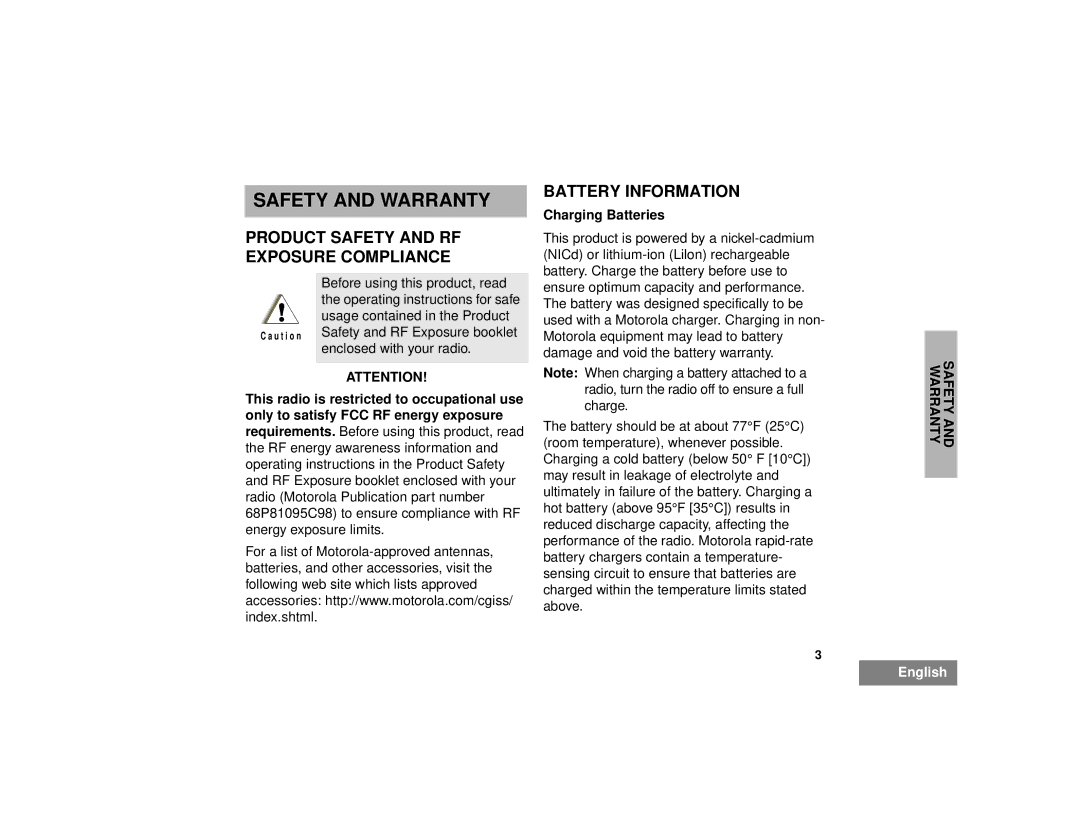
SAFETY AND WARRANTY
PRODUCT SAFETY AND RF EXPOSURE COMPLIANCE
BATTERY INFORMATION
Charging Batteries
This product is powered by a
!
C a u t i o n
Before using this product, read the operating instructions for safe usage contained in the Product Safety and RF Exposure booklet enclosed with your radio.
ATTENTION!
ensure optimum capacity and performance. The battery was designed specifically to be used with a Motorola charger. Charging in non- Motorola equipment may lead to battery damage and void the battery warranty.
Note: When charging a battery attached to a radio, turn the radio off to ensure a full
SAFETY
This radio is restricted to occupational use only to satisfy FCC RF energy exposure requirements. Before using this product, read the RF energy awareness information and operating instructions in the Product Safety and RF Exposure booklet enclosed with your radio (Motorola Publication part number 68P81095C98) to ensure compliance with RF energy exposure limits.
For a list of
charge.
The battery should be at about 77°F (25°C) (room temperature), whenever possible. Charging a cold battery (below 50° F [10°C]) may result in leakage of electrolyte and ultimately in failure of the battery. Charging a hot battery (above 95°F [35°C]) results in reduced discharge capacity, affecting the performance of the radio. Motorola
3
AND WARRANTY
English
